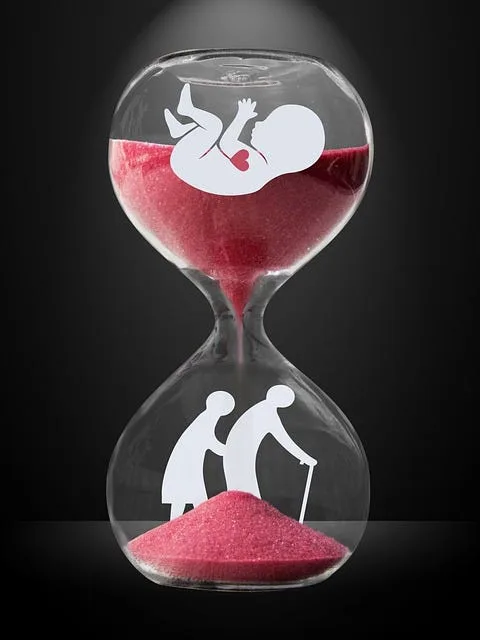This coming spring, Canada is set to allow those who suffer a mental illness to apply for medically assisted suicide. Belgium and Netherlands already allow it for mental illness that is deemed insufferable, mostly depressions, which make up around 1-2% of their total assisted suicides. In Switzerland the total rate of assisted suicides tripled from 2003-2014 [3], it’s estimated 4% are psychiatric patients [1].
The general consensus in the public conversation about assisted suicide seems to be support for it given old age, insufferable and untreatable illness, and an alternative to a shameful way of living. It’s not difficult to agree that someone shouldn’t be made to suffer unnecessarily. The largest organization who offers assisted suicide here is EXIT; they advertise self- determination and dignity in death. For many, suicide is a serious solution and something to be considered given the right circumstances.
However, during my training I was taught that suicide monitoring and prevention should come before all other considerations. Today I read we have a culture or an epidemic of suicide, and we lament the loss of young people to it. So naturally the psychiatric community is bending over backwards, trying to raise awareness and spread knowledge about it. One thing I learned that was helpful when learning a patient had suicidal thoughts, was that a depressed persons worldview is limited to the black and soulless place their mind occupies at the time. Hence, the challenge is to help them widen that horizon to include the consequences to their loved ones, and others involved should their suicide succeed. When talking to someone contemplating jumping in front of a train for example, one should ask the question of what life would look like for the train conductor in the aftermath. Do you think he would ever get over crushing a human on his train-tracks? Is it likely he would need years of therapy and probably sick-leave? In which case he could eventually have trouble supporting his family.
I once helped a man who was chosen by his friend to be by his side during his assisted suicide by EXIT. He was a reasonable man, never had mental issues before. Now he came for help because he had existential anxiety and sleeping problems. One day he came to see me, visibly shaken, baggy eyed, not able to focus, and he would sit hunched and almost curled into himself. He told me he had been by his friends’ side at the EXIT appointment, everything had been set up, he had said his goodbyes, but in the last moment, his friend had not been able to go through with it and postponed it. So, this poor man was on standby for saying goodbye yet again. Of course, he couldn’t communicate his hesitance to participate to his friend, out of fear of coming across quite unfeeling. It was postponed four times. My client struggled with depression and anxiety for long after.
Depression is considered one of the treatable psychiatric diagnoses. An integral part of its treatment is to encourage the notion that even though everything seems black and hopeless today, fight another day and tomorrow might hold a ray of light. I can’t imagine a point where I would say to a patient “this depression is unbearable and untreatable; I support you in your wish to die”. But in a culture where suicide is epidemic, could the cultural trend of setting dignity and autonomy before the consideration of family be part of the same problem? And how can I encourage stoicism and hope in the fight against any adversity, when society silently supports suicide for the “right reasons”?
Worth mentioning, is the fact that psychiatry is different from other fields of medicine, because of the subjectivity of our diagnosing processes. There’s a study that had a group of British and a group of American psychiatrists diagnose the same patient, and they found that this patient was given wildly different diagnoses from the two groups of psychiatrists. In light of this uncertainty, we should approach the statements about people being of “sound mind” when entering assisted suicide and having “untreatable chronic suicidality” with caution.
I can think of several phases in life where dignity takes a hike. When I change my toddler’s nappy, I find many things, but dignity is not on the table. I used to care for a man with ALS at one of the nursing homes I worked, sadly he had progressed enough that he needed help with cleaning and eating and all the rest. Most of my interactions with him was setting his regular butterfly-needle of morphine. It was hard to watch what seemed a miserable and most undignified existence. However, every other day, his teenage kids came to sit with him and eat cookies. I remember noticing his demeanor changing during that time, and would endeavor to speak the little he could. I never heard any words from him. Did they give him dignity enough to stay alive, or might there be something else that just for a little while, eclipses the undignified? Maybe that something permits the idea of an intrinsic value of life?
My husband’s grandmother “Mamisita” was diagnosed with Alzheimer’s in 1989, and the doctors gave her a prognosis of around a year. The family live in Gibraltar, and after the more Mediterranean fashion they collectively took care of her at home, everyone taking care of her on different days. Every Shabbat she would get her hair done nicely, they would dress her in a beautiful silk gown and the kids would say she looked like the queen. Everyone would drop by to give her a kiss. She was long past reacting or doing anything much herself in the end, except when she was given one of her baby great-grandchildren to hold. Then she would smile and be present with them. She passed away in 2004. In Switzerland the second most frequent cause of assisted suicide is neurological disorders [1].
As soon as our seniors lose their agency, they are made to feel like a burden to us, not that anyone has the financial and logistical means to take care of their elderly nowadays; having 3 children already brings us to our limit. It seems we value each other according to the productivity we bring to society. Both a cause and consequence of being depressed and feeling disenfranchised. As soon as you’re not “doing” anything, you are worthless. When I stopped working in order to stay at home with my children, I heard the same degrading comments of “not contributing anything” and “being too well educated to only have kids”. We should value everyone higher for the life that they’ve lived and the value they give their loved ones. This thinking echoes in the words we use around assisted suicide. Undignified living, shameful existence, burden on the family. Could some of it be projections of our own short-comings or manifestations of the psychological trend of “maximizing pleasure and reducing suffering at all cost?”
I have yet to meet a fellow young professional who readily agrees to these views. At a glance, my generation desperately searches for meaning in everything from mindfulness and travelling to random spiritual experiences and lofty career goals, as an alternative to commitment and family- the thing that has given us actual meaning for thousands of years. Finding no long-term meaning in the aforementioned, there’s relief in knowing there’s a possibility for an easy out at the end. The problem is, the teens are listening and we are the ones responsible for their attitude towards life and death.
In light of how we desperately try to live in the present and avoid suffering, how talk of a higher purpose or an overarching meaning is for the uneducated masses, and the value of life is exclusively tied to our current experience of it, no wonder support for assisted suicide is growing and the regulations slowly but steadily less limiting. Sometimes I even get the impression that the death is being portrayed as a service to the people closest. In fact, the EXIT website tells us that the family is better prepared for mourning when the death occurs in a chosen and predictable manner [2].
Saving suicidal people from their most self-destructive impulses has to be the psychiatrists’ number one task. This becomes difficult when we live in a world where an individuals’ life is assigned meaning based on their contributions. More challenging still, when the majority believes that choosing the time of your own death is a virtue and living an undignified life worthless. Why shouldn’t the depressed person on sick-leave who can’t get out of bed in the morning, or the 18-year-old drug addict be supported to end it in this palatable manner? What tools are psychiatrists left when the encouragement of hope is futile?
In the end the best method of suicide prevention is the consideration for loved ones who would suffer should the suicide succeed, for they are likely to carry that with them for the rest of their lives. In changing or removing this consideration, as the assisted suicide supporters attempt to do, nothing will remain to shield the suicidal thoughts from its execution.
[1] https://www.ncbi.nlm.nih.gov/pmc/articles/PMC6794705/
[2] https://exit.ch/artikel/exit-widerspricht-studie/
[3] https://bmjopen.bmj.com/content/8/4/e020992



